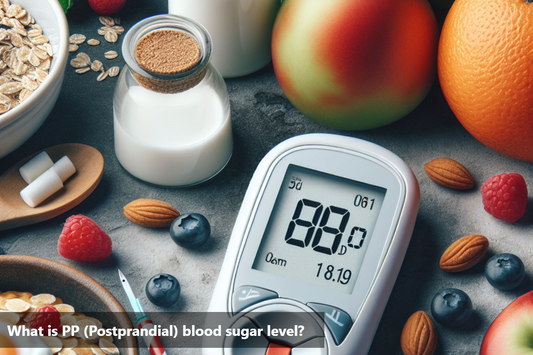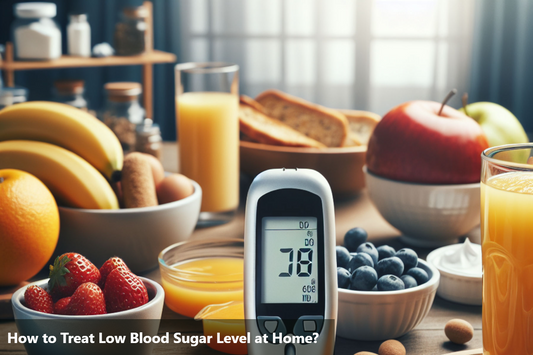An insulin test plays a crucial role in assessing one's health status. It measures the levels of insulin in the blood and provides valuable insights into various health conditions. When a doctor orders an insulin test, they are primarily looking to evaluate how well the body is producing and utilizing insulin, a hormone essential for regulating blood sugar levels. This test is commonly conducted to diagnose conditions like diabetes, hypoglycemia, and insulin resistance.
What is an Insulin Test?
An insulin test, also called a fasting insulin test or serum insulin test, checks the level of insulin in the blood. Insulin is a hormone made by the pancreas that helps control blood sugar levels. The test is usually done after not eating overnight or for a few hours to get accurate results. Doctors often order this test to see how much insulin is being made and to check for insulin resistance, a problem where the body's cells aren't responding well to insulin.
Here's what the insulin test involves:
Blood Sample: A healthcare provider or someone trained to take blood will draw a small sample from a vein in your arm. This sample is then sent to a lab for testing.
Fasting Requirement: Usually, you need to avoid eating for 8 to 12 hours before the blood is drawn. This helps get a good measurement of your insulin levels, as eating can briefly raise insulin levels.
Insulin Measurement: In the lab, they check the blood sample to see how much insulin is there. The results show the concentration in units called micro International Units per milliliter (μIU/mL) or picomoles per liter (pmol/L).
Interpretation: The test results give important details about insulin production and response. Higher insulin levels than normal can suggest insulin resistance, while lower levels could mean insulin production issues or diabetes.
Clinical Use: This test is commonly used to diagnose and manage diabetes, prediabetes, and metabolic syndrome. It might also be done to keep track of insulin treatment in people with diabetes or to check for conditions linked to insulin resistance like polycystic ovary syndrome (PCOS) or metabolic problems.
Interpreting Insulin Test Results
Normal Range: The usual range for fasting insulin levels can change slightly based on where the lab is and the units used for measurement (a little unit called micro International Units per milliliter or picomoles per liter). Generally, fasting insulin levels in healthy people are usually between 2 to 25 μIU/mL or 15 to 180 pmol/L.
High Insulin Levels (Hyperinsulinemia): If fasting insulin levels are higher than normal, it might mean the body's cells are not responding well to insulin. This is often linked to prediabetes, type 2 diabetes, obesity, metabolic syndrome, and a condition called polycystic ovary syndrome (PCOS). High insulin levels can also happen because of certain medications like corticosteroids or antipsychotics.
Low Insulin Levels (Hypoinsulinemia): If fasting insulin levels are lower than normal, it might suggest that the pancreas isn't making enough insulin. This could happen in type 1 diabetes or in the later stages of type 2 diabetes when certain cells in the pancreas are harmed. Low insulin levels can also be seen in conditions like pancreatic issues, autoimmune diseases that affect the pancreas, or some medications that reduce insulin release.
Reading with Glucose Levels: Insulin test results are usually checked along with blood glucose levels to understand how well the body is managing sugar. People with insulin resistance may have high fasting insulin levels even if their fasting blood sugar levels are normal. But if glucose tolerance is poor or hemoglobin A1c (HbA1c) levels are high, it could mean prediabetes or diabetes.
Healthcare Evaluation: A healthcare professional, like a doctor or hormone specialist, should analyze insulin test results considering the person's medical past, symptoms, and other tests. More tests such as glucose tolerance checks, hemoglobin A1c tests, or images might be needed to study how insulin works and sugar metabolism.
Treating the Issue: Depending on how test results are understood and the health condition, treatment plans might involve lifestyle changes (like food and activity), pills (for type 2 diabetes), insulin (for type 1 or bad type 2 diabetes), or controlling other issues leading to insulin resistance.
Factors Affecting Insulin Levels
Blood Sugar Levels and Insulin: When you eat, your blood sugar goes up. Your pancreas releases insulin to move the sugar from your blood into your cells for energy or storage.
Types of Carbohydrates: Different types of carbs affect insulin differently. Sugary foods make your blood sugar go up quickly and cause the release of insulin. On the other hand, whole grains and foods with fiber digest slowly, leading to a slower increase in blood sugar and insulin.
Protein Intake: Protein can also affect insulin, but not as much as carbs do. Some parts of protein can trigger the release of insulin. Protein doesn't raise blood sugar by a lot, so its impact on insulin is usually less than carbs.
Dietary Fat: Fat doesn't directly impact insulin. However, when you eat fat with carbs, it slows down how fast sugar is absorbed. This can result in more stable insulin responses and lower levels of insulin.
Eating Habits: Your eating habits can affect insulin. Eating large meals with lots of carbs can lead to higher insulin release compared to eating smaller, balanced meals spread throughout the day. Spacing out meals or trying intermittent fasting can help lower insulin levels.
Physical Activity: Being active can make your cells respond better to insulin, helping them take in sugar from your blood. Regular exercise can help manage blood sugar, reduce insulin resistance, and increase overall insulin sensitivity.
Body Weight and Fat: Having extra body fat, especially around your belly, is linked to insulin resistance and high levels of insulin. Losing weight through diet and exercise can improve insulin sensitivity and decrease insulin levels.
Medications and Hormones: Some medicines and hormones can change how your body reacts to insulin, affecting your insulin levels. Stress hormones like cortisol and adrenaline can also influence insulin.
Genetics and Health Conditions: Your genes and certain health conditions such as type 2 diabetes or PCOS can lead to insulin resistance and high insulin levels.
Bottom Line
Interpreting the results of an insulin test is essential as it can provide valuable information regarding one's insulin sensitivity, diabetes risk, and overall metabolic health. Understanding normal insulin levels and recognizing the implications of high or low levels is key to making informed decisions about lifestyle choices and medical interventions.
Factors such as diet, exercise, stress, and medication can significantly influence insulin levels, underscoring the importance of regular monitoring and awareness of these variables. By staying proactive in managing these factors, individuals can better control their health outcomes and potentially prevent the onset of serious health conditions.
Maintaining optimal insulin levels through monitoring and lifestyle adjustments is a cornerstone of holistic health and well-being, empowering individuals to take charge of their metabolic health and overall quality of life.
This Blog post is an initiative by DiabeSmart, to provide accurate and Nutritionist / Doctor approved information related to Diabetes. DiabeSmart is India's first Food brand designed specifically for Diabetics, that has been clinically tested on Diabetics and Pre-Diabetics to deliver 55% - 70% lower Sugar spikes. DiabeSmart is part of Lo! Foods - India's leading brand for Everyday Functional Health foods.











